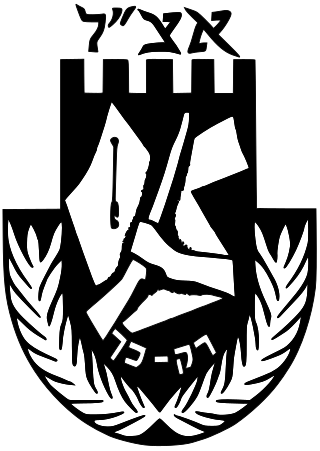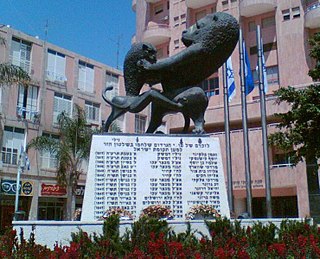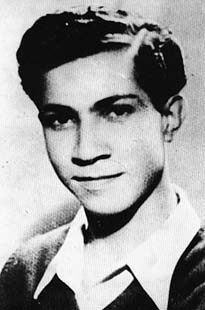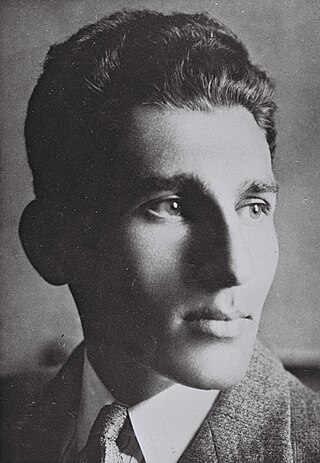
The Irgun, officially the National Military Organization in the Land of Israel, was a Zionist paramilitary organization that operated in Mandatory Palestine between 1931 and 1948. It was an offshoot of the older and larger Jewish paramilitary organization Haganah. The Irgun has been viewed as a terrorist organization or organization which carried out terrorist acts.

Zionist political violence refers to acts of political violence or terrorism committed by Zionists in support of establishing and maintaining a Jewish state in Palestine. These actions have been carried out by individuals, paramilitary groups, and the Israeli government, from the early 20th century to the present day, as part of the ongoing Israeli-Palestinian conflict.

Menachem Begin was an Israeli politician, founder of both Herut and Likud and the sixth Prime Minister of Israel.

Lehi, officially the Fighters for the Freedom of Israel and often known pejoratively as the Stern Gang, was a Zionist paramilitary militant organization founded by Avraham ("Yair") Stern in Mandatory Palestine. Its avowed aim was to evict the British authorities from Palestine by use of violence, allowing unrestricted immigration of Jews and the formation of a Jewish state. It was initially called the National Military Organization in Israel, upon being founded in August 1940, but was renamed Lehi one month later. The group referred to its members as terrorists and admitted to having carried out acts of terrorism.
Haganah was the main Zionist paramilitary organization that operated for the Yishuv in the British Mandate for Palestine. It was founded in 1920 to defend the Yishuv's presence in the region, and was formally disbanded in 1948, when it became the core force integrated into the Israel Defense Forces shortly after the Israeli Declaration of Independence.

Yitzhak Shamir was an Israeli politician and the seventh prime minister of Israel, serving two terms. Before the establishment of the State of Israel, Shamir was a leader of the Zionist militant group Lehi, also known as the Stern Gang.

Operation Agatha, sometimes called Black Sabbath or Black Saturday because it began on the Jewish sabbath, was a police and military operation conducted by the British authorities in Mandatory Palestine during the Jewish insurgency. Soldiers and police searched for arms and made arrests in Jerusalem, Tel Aviv, Haifa and several dozen settlements; the Jewish Agency was raided. The total number of British security forces involved is variously reported as 10,000, 17,000, and 25,000. About 2,700 individuals were arrested, among them future Israeli Prime Minister Moshe Sharett. The officially given purpose of the operation was to end "the state of anarchy" then existing in Palestine. Other objectives included obtaining documentary proof of Jewish Agency approval of sabotage operations by the Palmach and of an alliance between the Haganah and the more violent Lehi and Irgun, destroying the Haganah's military power, boosting army morale and preventing a coup d'état being mounted by the Lehi and Irgun.

Hillel Kook, also known as Peter Bergson, was a Revisionist Zionist activist and politician.

Meir Feinstein was an Irgun member during the Jewish insurgency in Mandatory Palestine. Feinstein, who was sentenced to death by the British authorities, is remembered for his suicide together with Moshe Barazani, a member of the group Lehi, under sentence of death; the two killed themselves embracing each other with a live grenade lodged between them hours before their scheduled hangings. He is memorialized in Israel today as one of 12 Olei Hagardom.

Olei Hagardom refers to members of the two Jewish Revisionist pre-state underground organisations Irgun and Lehi, most of whom were tried in British Mandate military courts and sentenced to death by hanging. Most of the executions were carried out at Acre Prison. There were 12 Olei Hagardom.

Israel Eldad, was an Israeli Revisionist Zionist philosopher and member of the Jewish underground group Lehi in Mandatory Palestine.

Moshe Barazani, also Barzani was an Iraqi-born Kurdish Jew and a member of Lehi underground movement in pre-state Mandate Palestine during the Jewish insurgency in Palestine. He is most notable for having died by suicide with a hand grenade together with Meir Feinstein, another Jewish underground fighter under sentence of death, shortly before their scheduled executions, and is memorialized in Israel today as one of the Olei Hagardom.

The Jewish insurgency in Mandatory Palestine, known in the United Kingdom as the Palestine Emergency, was a paramilitary campaign carried out by Zionist underground groups against British rule in Mandatory Palestine from 1944 to 1948. The tensions between the Zionist underground and the British mandatory authorities rose from 1938 and intensified with the publication of the White Paper of 1939. The Paper outlined new government policies to place further restrictions on Jewish immigration and land purchases, and declared the intention of giving independence to Palestine, with an Arab majority, within ten years. Though World War II brought relative calm, tensions again escalated into an armed struggle towards the end of the war, when it became clear that the Axis powers were close to defeat.

The Deir Yassin massacre took place on April 9, 1948, when Zionist paramilitaries attacked the village of Deir Yassin near Jerusalem, Mandatory Palestine, killing at least 107 Palestinian Arab villagers, including women and children. The attack was conducted primarily by the Irgun and Lehi, who were supported by the Haganah and Palmach. The massacre was carried out despite the village having agreed to a non-aggression pact. It occurred during the 1947–1948 civil war and was a central component of the Nakba and the 1948 Palestinian expulsion and flight.

Amichai Paglin, codename "Gidi" was an Israeli businessman who served as Chief Operations Officer of the Irgun during the Mandate era. He planned and personally led numerous attacks against the British during the Jewish insurgency in Palestine, including the notorious King David Hotel bombing, commanded the battle to conquer Jaffa in the 1947–48 Civil War in Mandatory Palestine, and participated in the 1948 Arab–Israeli War. Following independence, he ran an industrial oven factory together with his father, and was later appointed Prime Minister Menachem Begin's counter-terrorism adviser. Only a few months after his appointment, however, Paglin died in a car crash.
Events in the year 1948 in Israel.

Events in the year 1947 in the British Mandate of Palestine.

Avi Nesher is an Israeli film producer, film director, screenwriter and actor.

Avraham Stern, alias Yair, was one of the leaders of the Jewish paramilitary organization Irgun. In September 1940, he founded a breakaway militant Zionist group named Lehi, called the "Stern Gang" by the British authorities and by the mainstream in the Yishuv Jewish establishment. The group referred to its members as terrorists and admitted to having carried out terrorist attacks.
















